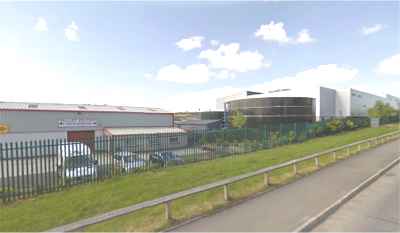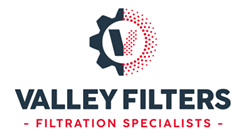Your basket is currently empty!
Frequently Asked Questions
What is a DPF?
A DPF is a Diesel Particulate Filter (or FAP in French cars). It is a device designed to remove diesel soot (or particulate matter) from the exhaust gas of a diesel engine.
Why should a DPF be cleaned?
The DPF (FAP) Diesel Particulate Filter system used in a typical car diesel engine has the ability to regenerate itself (incinerate collected soot) but at some point it will fill up with ash and must be cut open and cleaned—or replaced all together.
Can I remove a DPF or not use a DPF?
Removing a DPF device is now illegal in the UK or Ireland and a motor car that was originally fitted with a DPF by the vehicle manufacturer will fail the MOT or NCT test if the DPF device is missing from that vehicle.
How does a DPF (Diesel Particulate Filter) operate?
The filter medium in the DPF is made up of a ceramic core through which the exhaust gasses are forced as a result of the temperature and pressure created when as leave the engine. The soot particles are trapped in the filter until a predetermined level controlled by the engine ECU is reached. At this point the DPF will clean itself by a process called regeneration. During the regeneration process, the temperature inside the filter increases and incinerates any trapped soot particles inside the filter core.
Does my driving affect the DPF Regeneration process?
In order to complete the regeneration process the temperature inside the Diesel Particulate Filter unit needs to be increased and maintained. When driving on motorways and dual carriageways, the temperature and pressure of the exhaust gases inside the DPF is sufficient to complete the regeneration process without any assistance. However, if the vehicle is operated in an urban environment, with frequent stopping and starting or experiences long periods at idle, the temperature and pressure of the exhaust gases is considerably reduced. In this situation, the DPF filter might not regenerate without assistance from the driver. If regeneration fails or is incomplete the driver is informed by the illumination of a warning lamp on the dash and a message in the vehicle’s information screen. Eventually, the DPF needs to be cleaned of the soot or replaced, typically at 70,000 to 100,000 kms. This will happen sooner if the DPF fails to regenerate regularly. Generally, a diesel car operating mostly in stop/start driving or urban driving will require a DPF cleaning more often that a diesel car doing regular motorway or long journeys.
What are the most common reasons for rejecting air filters for cleaning?
Some of the most common reasons for rejecting an air filter for re-use or cleaning include:
- The existence of pinholes in the media
- Damaged filter media or damage to the casings or coverings
- Diesel fuel or oil stains in the filter media
Does the cleaning process harm my filter?
Not at all. The horror stories that you have heard about are usually related to filters that were “cleaned” by the user themselves. Remember, the cleaning and re-conditioning process is the key when it comes to cleaning your filters. At Valley Filters, our unique cleaning system has been tried and tested over many years.
How many times can you clean an air filter?
Depending on their condition, your primary (or outer) engine air filters can be cleaned up to four times. The secondary(or safety) air filters can be cleaned from four to six times depending on condition. Industrial or other non-engine filters can be cleaned up to eight times. However, if there is any damage to the filter casing or media, or the filter is showing signs of aging, we will not process it. Our requirements and limits are self-imposed and serve to protect your expensive equipment.
Do you track and inspect my filter during cleaning?
We have exacting systems in place devoted to tracking, inspecting, and quality control in our filter cleaning, filter remanufacturing and stock control departments.
How are the air filters packaged after they have been cleaned?
All cleaned or reconditioned air filters are wrapped in protective plastic packaging to protect them during shipping and delivery back to the customer.
What types of air filters do you clean?
We can clean or recondition the following types of air filters:
Engine Air Filters:
- All round primary or outer engine air filters
- All round secondary or safety engine air filters
- Square cab filters
- Radial Seal type air filters
Industrial Air Filters:
- Cement silo filters
- Fabric type air filters
- Pleated bag type filters
- Rock drill filters
- Wire backed air filters
Dust Collector Filters:
- Conical cartridge filters
- Dust collector cartridges
- Panel type collectors
Bag Filters:
- Envelope style bag filters
- Multi-bag
- Tapered bag filters
- Tube bag filters
Do you supply new air filters?
Yes, we are official agents for Baldwin, Fleetguard, Donaldson and Mann Filters. We can offer our customers a complete range of air, oil, fuel, hydraulic and other heavy duty filters at competitive prices.
Do you offer a pick up and delivery service?
Yes, we offer a free pickup and delivery service to our customers in Ireland and the UK. Call us now at 042-966-2365 for more information or to arrange a pick up.
Search
Office & Plant
Ross Road Industrial Estate,
Carrickmacross,
Co. Monaghan, A81 KF99
Ireland
Ph: 042-966-2365
Fx: 042-966-2512
Email: info@valleyfilters.com

Opening Hours
9am – 6pm Mon – Thur
9am – 4pm Fri
Closed on Public and Bank Holidays


